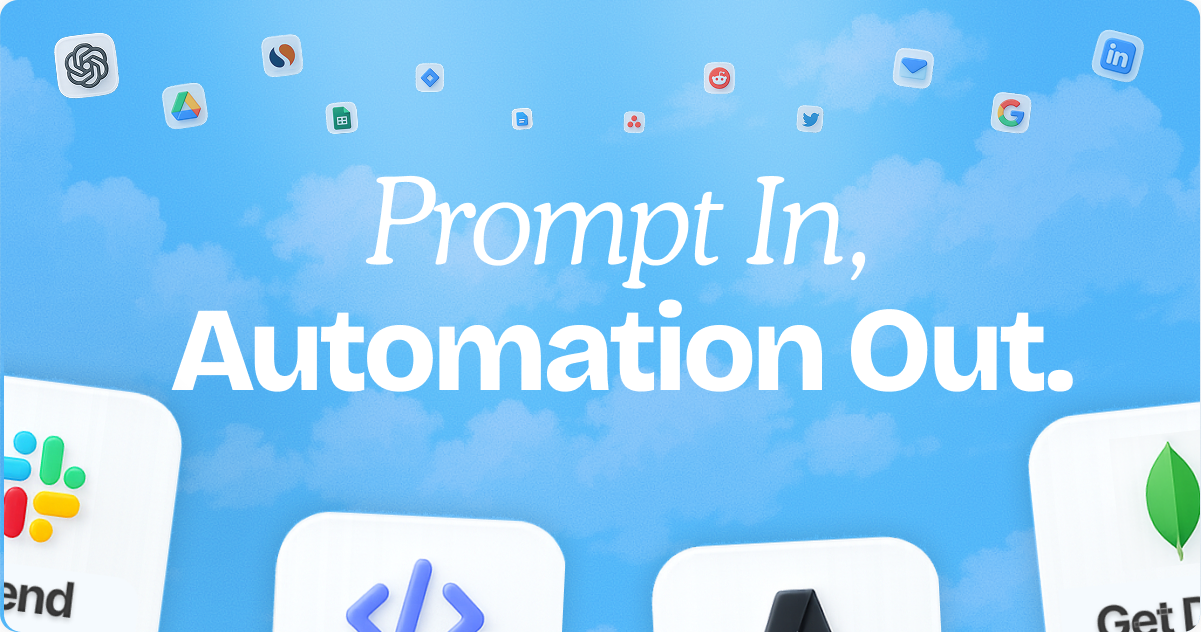Good morning. It’s Friday, November 14th.
On this day in tech history: In 1981, Danny Hillis proposed the “Connection Machine,” a massively parallel processor inspired by Minsky’s Society of Mind. It used up to 65,536 simple CPUs and a dataflow architecture to simulate neural-style computation long before GPUs. The project’s mascot was a tiny chrome cube and its software inspired Lisp parallelism libraries. Years later, ex-Connection Machine engineers helped design Pixar’s rendering systems and Google’s distributed infrastructure.
In today’s email:
DeepMind’s SIMA 2
GPT-5.1
Anthropic’s “Project Fetch”
5 New AI Tools
Latest AI Research Papers
You read. We listen. Let us know what you think by replying to this email.
Free, private email that puts your privacy first
A private inbox doesn’t have to come with a price tag—or a catch. Proton Mail’s free plan gives you the privacy and security you expect, without selling your data or showing you ads.
Built by scientists and privacy advocates, Proton Mail uses end-to-end encryption to keep your conversations secure. No scanning. No targeting. No creepy promotions.
With Proton, you’re not the product — you’re in control.
Start for free. Upgrade anytime. Stay private always.

Today’s trending AI news stories
Google and DeepMind push AI forward with 3D reasoning and Workspace upgrades with SIMA 2
DeepMind’s SIMA 2, now integrated with Gemini, advances beyond instruction-following agents to goal-driven reasoning in 3D virtual environments. It interprets visuals, text, sketches, and emojis to perform multi-step tasks, explain reasoning, and generalize skills across unfamiliar games like MineDojo and ASKA. A self-improvement loop enables autonomous task generation and learning in procedurally generated Genie 3 worlds, laying groundwork for future robotics applications.
In formal reasoning, DeepMind just published a paper in Nature on AlphaProof, their AI that tackled the International Mathematical Olympiad and scored silver, solving four of six problems with fully verifiable Lean proofs. Combining large-model intuition and reinforcement learning, it explores solutions like a human, though slowly and taking days. This marks a first for AI in verifiable, high-level symbolic reasoning.
Google’s generative and productivity tools see major upgrades: NotebookLM now supports persistent chat, Deep Research, multimodal summaries, and video generation from arbitrary prompts.
Gemini Live delivers expressive, low-latency voice interaction. Stitch expands into design-to-prototype workflows with heatmaps, export, and pitch-deck generation. Google Images introduces a personalized “Images” feed, and Google Drive adds AI-generated audio overviews for PDFs.

The visualization captures how AI models process the world differently depending on alignment.
Human-aligned AI via AligNet continues to outperform baselines, fine-tuning vision models for semantic structure, robustness, and uncertainty calibration. These initiatives reflect a cohesive push toward interoperable, interpretable, and human-aligned AI across research, creative, and enterprise workflows. Read more.
OpenAI pushes GPT-5.1 upgrades, braces for multi-year losses
OpenAI’s GPT-5.1 is a major ChatGPT upgrade offering two modes: Instant, optimized for speed and natural conversation, and Thinking, which scales reasoning dynamically for complex queries. Both modes now support eight new personality styles: Professional, Friendly, Candid, Quirky, Efficient, Cynical, Nerdy, Default, along with real-time controls for conciseness and emoji usage. Coding capabilities have improved via gpt-5.1-codex and gpt-5.1-codex-mini, while a No Reasoning mode accelerates simple tasks. Benchmarks in math and coding show clear gains, and jailbreak resistance has improved, though handling of sensitive content shows minor declines.
On the legal front, OpenAI launched a new public salvo against The New York Times’ request for 20 million anonymized ChatGPT logs in a copyright dispute, even though a federal court had ruled in favor of disclosure. CISO Dane Stuckey framed the request as a potential breach of user privacy in a public statement.
The company recently led a $15 million seed round in Red Queen Bio, a startup using AI modeling and lab research to prevent AI-enabled bioweapons. Separately, Exowatt, backed by Sam Altman, is scaling modular concentrated solar systems for AI data centers. Each P3 unit stores heat in high-capacity bricks for up to five days, powering Stirling engines and generators, aiming for continuous, ultra-low-cost electricity at scale.
OpenAI projects steep losses through 2028, peaking at $74 billion, before reaching wild profitability around 2030. The strategy relies on massive investments in computing infrastructure, chips, and data centers, totaling over $115 billion in cumulative cash burn. CEO Sam Altman frames this as a necessary gamble to meet explosive demand. Global product expansion continues with ChatGPT group chats piloting in Japan, New Zealand, South Korea, and Taiwan. Read more.
‘Project Fetch’ shows Anthropic’s Claude can handle physical tasks, infrastructure follows
Anthropic is going all-in on Claude with a $50 billion U.S. data center push, starting in Texas and New York. These aren’t off-the-shelf setups. They’re custom-built for high-demand AI workloads, aiming to power serious R&D and business applications. First sites hit in 2026, creating 800 permanent jobs and 2,400 construction roles.
Meanwhile, Claude is proving its chops in the physical world. In Project Fetch, non-robotics experts guided quadruped robots using Claude and completed tasks twice as fast as AI-free teams, edging toward full autonomy. Claude sped up connecting to sensors, orchestrated parallel problem-solving, and even handled tricky localization and detection tasks that usually trip humans up.
Security and bias are front-of-mind. Claude was exploited by state-backed hackers in September to autonomously run cyberattacks, highlighting risks of AI in the wild. On the governance side, reinforcement learning and system prompts keep Claude politically neutral, scoring 94–95% in even-handedness, above Meta and OpenAI. Read more.


5 new AI-powered tools from around the web

arXiv is a free online library where researchers share pre-publication papers.

Thank you for reading today’s edition.

Your feedback is valuable. Respond to this email and tell us how you think we could add more value to this newsletter.
Interested in reaching smart readers like you? To become an AI Breakfast sponsor, reply to this email or DM us on 𝕏!








